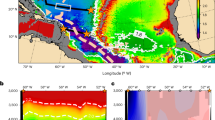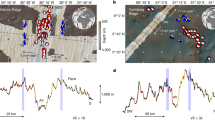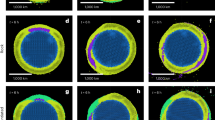Abstract
THE geological relationship of the Atlantic Ocean to Europe is recorded west of the British Isles and France in a sequence of continental shelf and slope deposits, although the latter seem to be missing on the northern and western sides of Iberia1. Accordingly, the southern continental slope of Iberia was examined (Fig. 1) for the missing parts of the record, particularly south of Portugal where a detailed bathymetric survey had revealed a series of long, sub-parallel ridges with a westerly to west–south–westerly trend (Hydrographer of the Navy, personal communication).
This is a preview of subscription content, access via your institution
Access options
Subscribe to this journal
Receive 51 print issues and online access
$199.00 per year
only $3.90 per issue
Buy this article
- Purchase on Springer Link
- Instant access to full article PDF
Prices may be subject to local taxes which are calculated during checkout
Similar content being viewed by others
References
Curray, J., et al., Science, 154, 265 (1966).
Drake, C. L., et al., Coll. Repr. Lamont Geol. Obs., No. 328 (1959).
Author information
Authors and Affiliations
Rights and permissions
About this article
Cite this article
ROBERTS, D., STRIDE, A. Late Tertiary Slumping on the Continental Slope of Southern Portugal. Nature 217, 48–50 (1968). https://doi.org/10.1038/217048a0
Received:
Issue Date:
DOI: https://doi.org/10.1038/217048a0
Comments
By submitting a comment you agree to abide by our Terms and Community Guidelines. If you find something abusive or that does not comply with our terms or guidelines please flag it as inappropriate.



